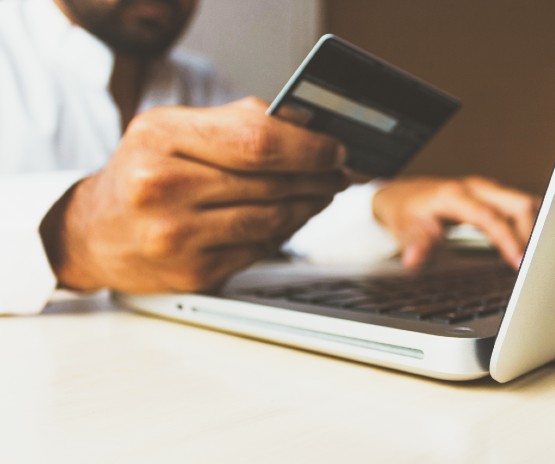Our Internet banking product uses the most advanced security available on the Internet today. The same level of security used in our branches, ATM machines, and telephone banking system are also employed in our Online Internet banking product.
All sensitive information is encrypted and online access requires a Personal ID and a Password known only to you. (Note: Only valid account-holders should know the Internet Banking ID and Internet Banking Password)
Designed and tested with and by industry experts, our Internet Banking state-of-the-art technologies will protect your information.
Government regulators oversee all of our banking operations including Online Banking. In addition, Government agencies regularly audit our operations to ensure we comply with best business practices and the law.
Besides the security measures already mentioned, we employ internal bank controls to ensure optimum security for your Internet banking.
About Security
We recognize security concerns, and we are serious about security issues. In addition to our high security standards offline, we incorporate many security tiers into our Internet banking system. Every possible effort is made to ensure that your account information is protected from unauthorized access. For questions regarding security issues, please contact us.
SSL and Firewalls
Online Banking is accessed through a Secure Socket Layer (or SSL). This means all data transmitted to or from the bank's computer systems is encrypted using the most sophisticated security available to protect your money and privacy. Several firewalls exist to prevent unauthorized access to the system and to ensure your information is accessible only by using a correct Internet Banking ID and Internet Banking Password.
Security Software on Processing System
Internet Banking is a secure area. No one can view, obtain, or intercept information from this secure area without a proper Internet Banking ID and Internet Banking Password.
Browsers
All URLs in NetTeller will begin with https://www.netteller.com. Note that all of these URLs begin with https instead of http. The designation, https, indicates that a secure connection has been made.
Note: You may receive a message to change your browser settings when requesting a document from a secure area. Follow your browser instructions.
Protecting Information Online
It is very important that only you know your User ID and Password. This is the only way your account may be accessed. Three (3) unsuccessful attempts will lock out the User from accessing their account. If a user becomes locked out, they must call your local banking center to have your account unlocked.
Email Solicitation
We do not solicit information (SSN, account numbers, credit card numbers, passwords, etc) by means of email. If you receive an email requesting confidential information from someone claiming to represent the bank, do not respond to the email. Please call your local banking center to report any solicitation of this kind that you receive.
Account Numbers Not Visible
Your account numbers are not visible Online and cannot be found anywhere on Online Banking. A "Pseudo Name" is used in place of an account number to maximize the security of your Online Banking experience.
Automatic Log Off
After a ten-minute period of inactivity, the system will automatically log you off and force you to re-enter your User ID and Password.
Upgrades
We are constantly upgrading our system to include the most recent Internet security features. Suspect reports are generated daily to monitor and ensure that people without access are not attempting to log into your account.
Your Role in Security
- Choose a good Personal Identification Number! You should carefully select a Password that is hard to guess and never use a word that can be found in the dictionary.
- Memorize your Password! Even the best Password is worthless if it's written on a note attached to your computer or an entry in your checkbook.
- Don't share your Internet Banking Password with anyone else. Your PIN is designed to protect the privacy of your banking information, but it will only work if you keep it to yourself. If you think your Password has been compromised, change it immediately online and immediately contact us.
- Change your Login ID and Password as often as you wish (we recommend changing your Password at least once each month).
- Don't leave your computer unattended during a NetTeller session - click on "exit" to end your session.
- Once you have finished conducting your banking on the Internet, always sign off before visiting other Internet sites.
- If anyone else has access to your computer, clear your browser's cache in order to eliminate copies of Web pages that have been stored on your hard drive.
- Avoid using public Internet access terminals when conducting your Internet banking.
Important Note: While we continue to do everything possible to ensure the security of our system, we are not responsible for any breach of security that is outside of our control.

